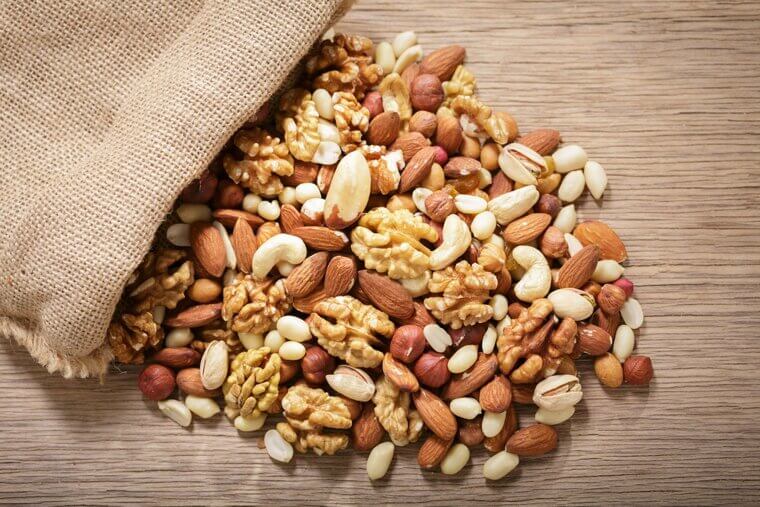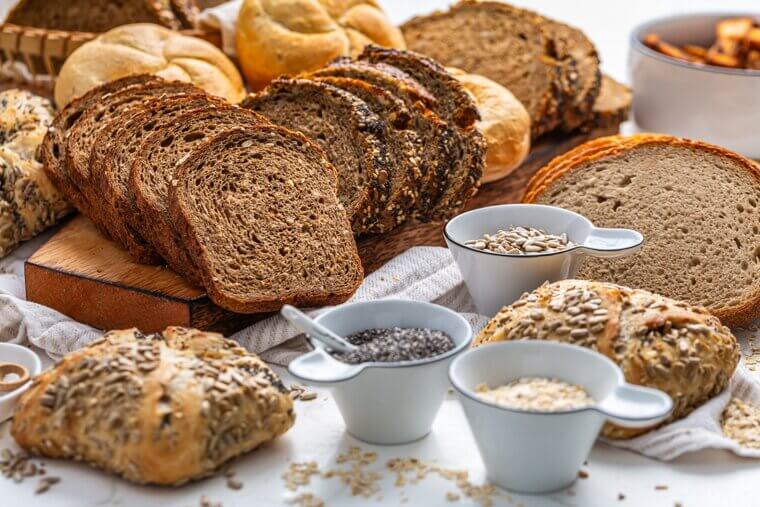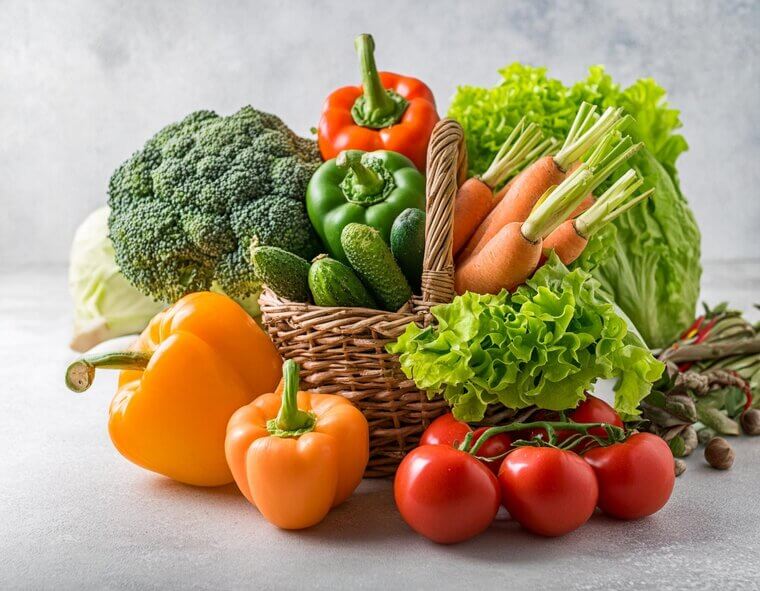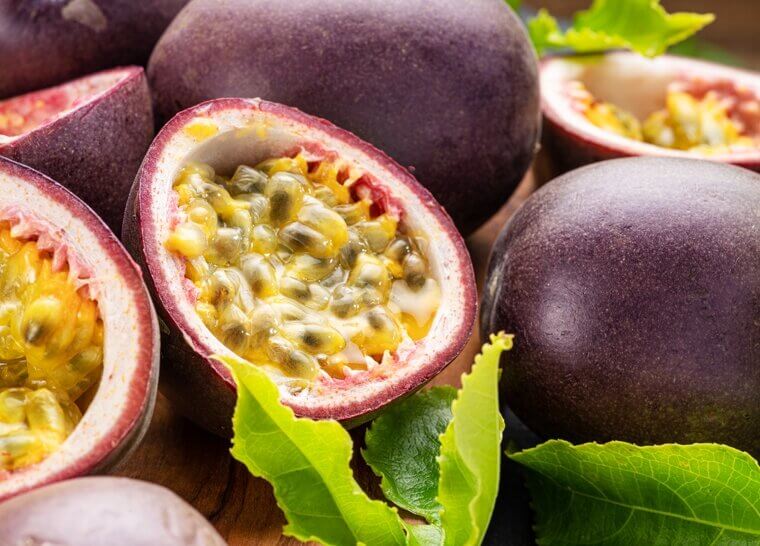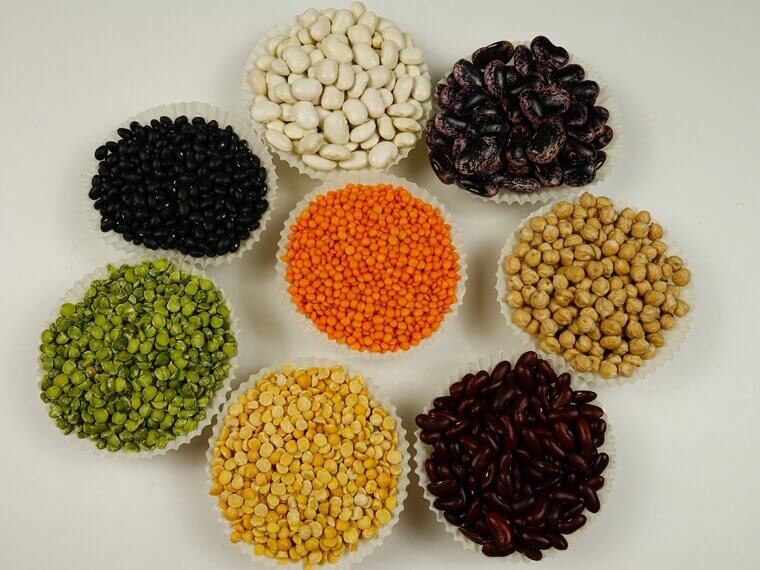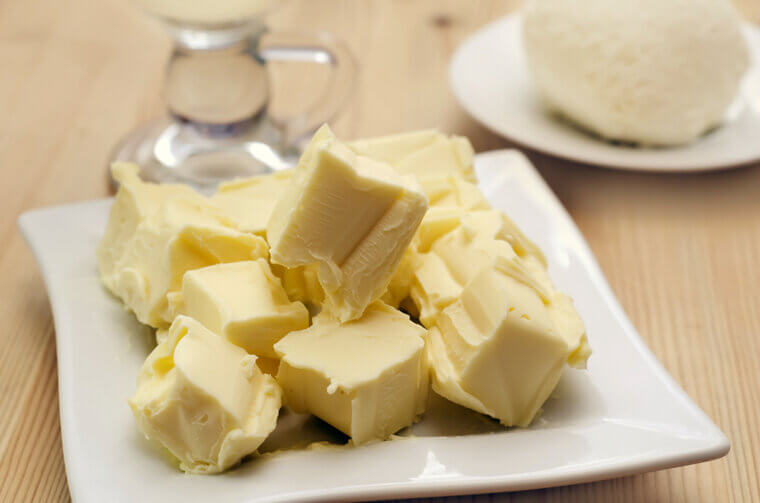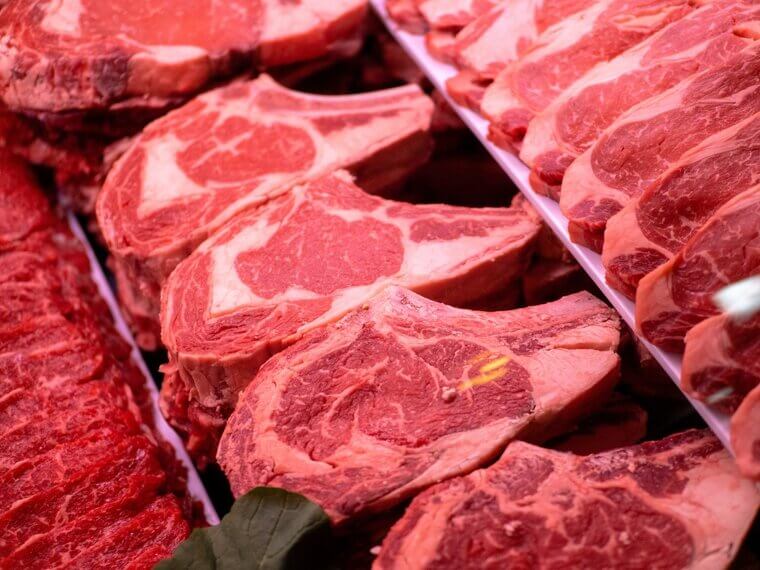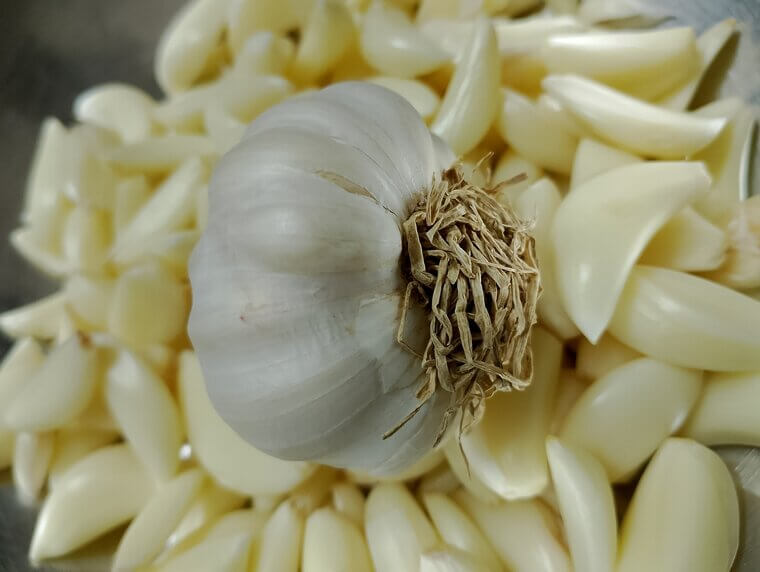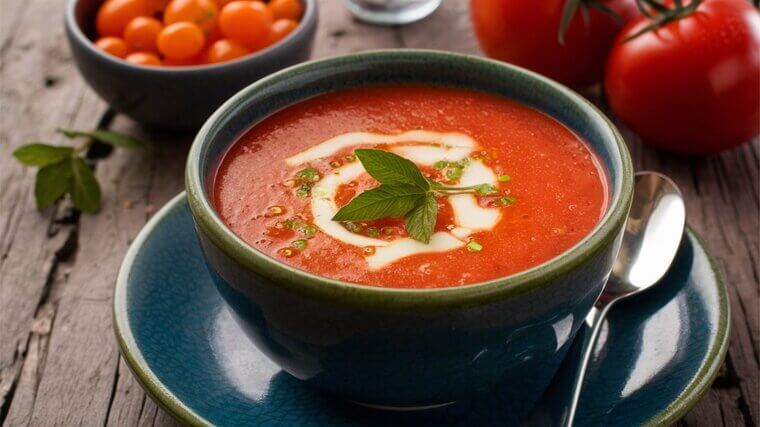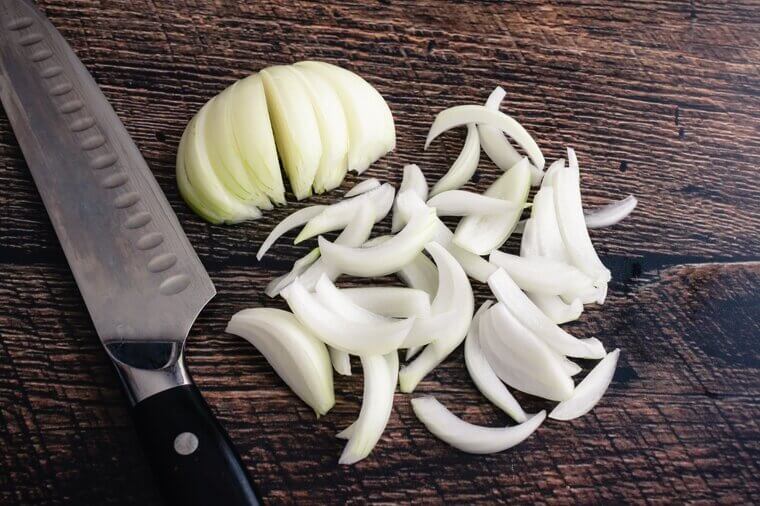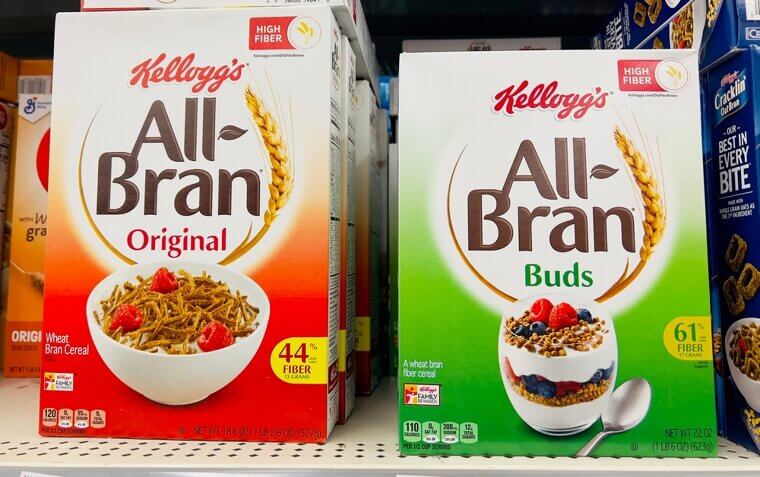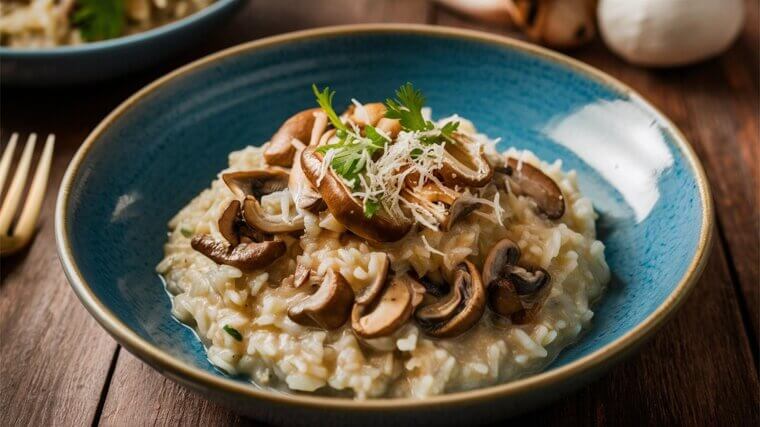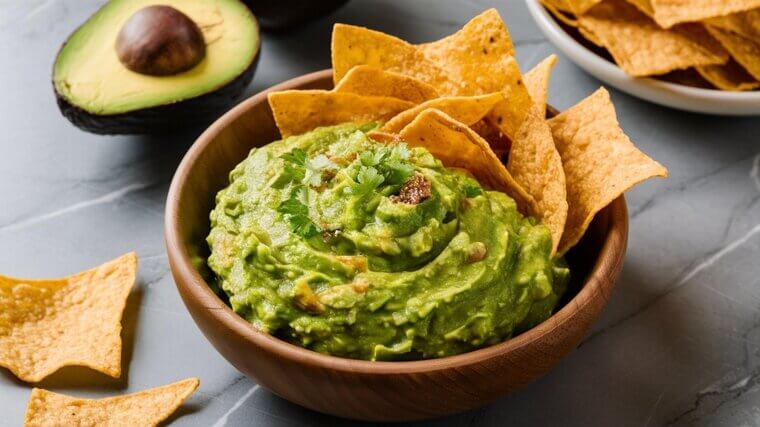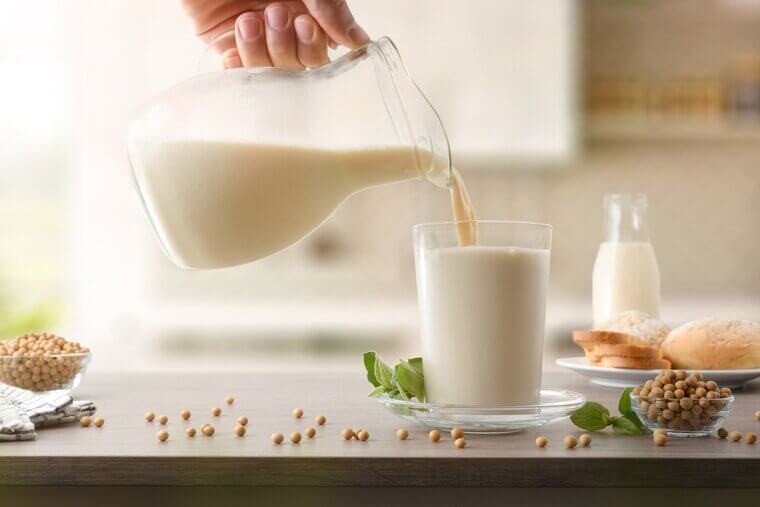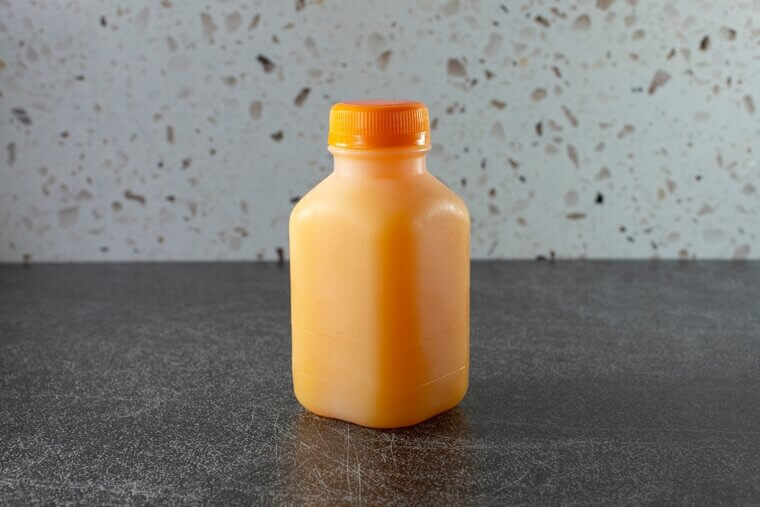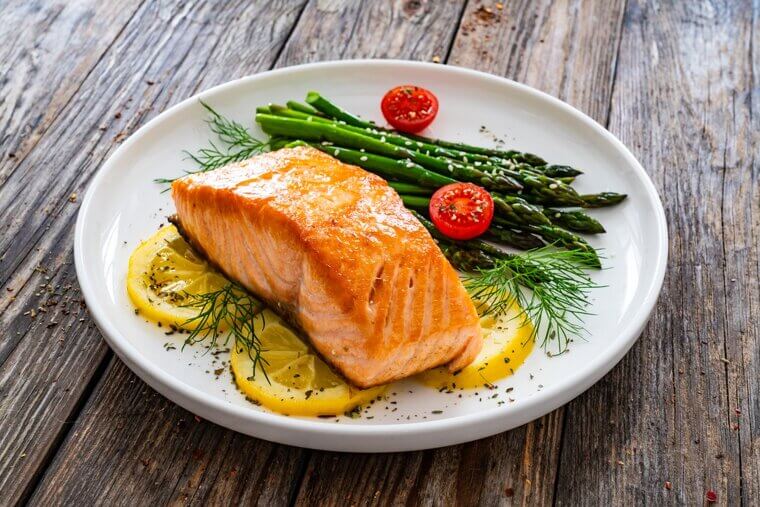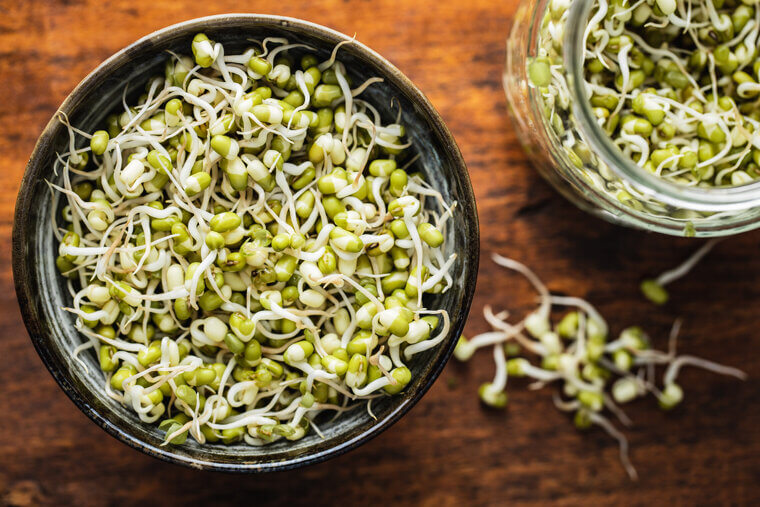Spicy Foods: Prone To Heat Crohn’s Symptoms
Eating spicy foods like hot peppers, hot sauce, and spicy curries can be troublesome for individuals with Crohn’s disease. This impact is due to the capsaicin in hot peppers that can irritate the digestive tract, leading to increased inflammation, pain, and diarrhea, worsening the condition of those with Crohn’s. Some spicy dishes contain other ingredients that can trigger symptoms, including chili powder, black pepper, and garlic. Use herbs and mild spices such as basil, oregano, and thyme as spice alternatives.
For those whose favorite meals contain some heat, a small amount of mild chili powder or paprika can provide flavor without the intestinal impact of hotter spices.
Dairy Products: A Catalyst For Crohn’s Disease
Dairy items like milk, yogurt, and cheese are everyday foods, but for individuals with Crohn’s disease, they can be pretty damaging. The most prominent issue is lactose, the natural sugar found in milk. Those with Crohn’s also experience lactose intolerance, meaning they struggle to digest lactose, leading to symptoms like bloating and abdominal pain. Aside from lactose, dairy products also contribute to inflammation symptoms. Healthier alternatives to dairy products include lactose-free milk, coconut yogurt, and almond milk, which offer similar textures and flavors.
With this, dairy-free cheese made from nuts or soy can serve as an appropriate substitute, allowing individuals with Crohn’s disease to enjoy their preferred dishes without risking a flare-up or worsening of symptoms.
Nuts and Seeds: A Small Food With A Big Impact
Seeds and nuts, such as walnuts, sunflower seeds, almonds, and even peanut butter, are rich in nutrients but can be problematic for persons with Crohn’s disease due to their tough outer shells and high fiber and fat levels. They lead to digestion difficulties and symptoms like gas and abdominal pain. Occasionally, the mechanical irritation caused by the texture of these foods to the gut lining may heighten symptoms. Smooth nut butter free of added sugars and preservatives are suitable substitutes.
Such substitutes mentioned offer the same nutritional advantages but are easier to digest. To reduce irritation, include seeds like Flaxseed or Chia in your diet.
Whole Grains: Fiber Turns Foe For Those With Crohn’s
Whole grains - such as brown rice, whole wheat bread, and bran cereals - are a prominent part of a diet. However, the high fiber within these meals proves to be a challenge for those who have Crohn’s to digest, resulting in symptoms like gas and diarrhea. Whole grains’ coarse texture can aggravate Crohn’s sufferers’ already inflamed intestinal lining, leading to discomfort and difficulty in treating the illness. Ideal alternatives would be refined flour, white bread, and white rice, as they are easier to digest.
Along with refined grains, gluten-free choices such as rice noodles and quinoa offer an increased range of diets without the inconvenient side effects of high-fiber gluten whole grains.
Fatty Meats: Why Breakfast Can Be Bad For Crohn’s
For those with Crohn’s, fatty meats like sausage, bacon, and specific types of pork and beef can be especially damaging. Their high content of saturated fats could be challenging to digest fully, developing intestinal irritation and exacerbating Crohn’s symptoms with general discomfort and cramps. Processed meats, like sausage and bacon, should be approached cautiously, considering their high fat, including the chemicals and preservatives that impact the digestive system. Such substances induce inflammation and trigger flare-ups by contributing to an imbalance in intestinal microbes.
Lean meats, including turkey, salmon, and chicken breast, are good protein sources with less saturation. These substitutes have a lower fat percentage and are more accessible for the gut to process.
Fried Foods: A One-Way Ticket For Crohn’s Symptoms
While fried foods such as onion rings, french fries, and fried chicken may be enticing, they can inflame the condition. Fried foods have high fat, which is strenuous for digestion, producing intestinal inflammation, pain, and diarrhea. Furthermore, frying oils can potentially aggravate the lining of the stomach, discharging inflammatory chemicals and exacerbating the inflammation experienced by people with Crohn’s disease. There's a chance that the breading and batter used for cooking contain gluten and other potentially irritating components that can activate symptoms.
Baking or grilling your favorite foods with olive oil is a healthier option. Instead of heavily breading, people with Crohn’s might choose lean proteins like fish or chicken breast seasoned with herbs and spices.
Raw Vegetables: Healthy Foods Turned Into Harmful
Broccoli, cauliflower, and cabbage are among the raw vegetables that are frequently lauded for their nutritional value. However, those who have Crohn's disease may find it challenging to deal with its fibrous nature. These veggies are difficult to digest because of their high fiber content and firm texture, which can cause discomfort in the abdomen. Raw vegetables also have substances that can be hard on the digestive system. Cruciferous vegetables like cabbage and broccoli can worsen Crohn’s tendencies with soreness.
Cooking vegetables at a high temperature, roasting, sautéing, or steaming them improves their digestibility. Vegetables that are soft and prepared, like zucchini and carrots, offer vital nutrients without causing discomfort.
High-Fiber Fruits: When Sweetness Turns Sour For Crohn’s
Fruits high in fiber, such as pears, blackberries, raspberries, and apples with skin, have numerous health advantages. However, these fruits can unpleasantly affect individuals with Crohn's disease. Although fiber aids digestion, an excessive amount of it can result in gas, diarrhea, and bloating. Insoluble fiber found in the skins of fruits like pears and apples can be stiff on the digestive tract, leading to increased Crohn's symptoms by irritating the inflammatory lining of the stomach.
Fruits with less fiber and more straightforward digestion, such as bananas, melons, and peeled apples, are better for those with Crohn's disease. These fruits don't upset your stomach yet offer vital vitamins and minerals.
Popcorn: A Favorite Movie Snacks’ Impact
People with Crohn's disease may experience extra hardships from popcorn regarding their digestive systems. Popcorn kernels have rough, fibrous hulls that make them difficult to digest and can displease or clog the intestines. These effects may result in bloating and flare-ups of Crohn's symptoms. Popcorn has a fibrous texture and is made with excessive butter and salt. Popcorn is a risky choice for people treating Crohn's because of its high fat level and sodium, worsening the condition and causing inflammation in the gut.
Consider air-popped popcorn without butter or salt added for a safer snack alternative. Instead of the harshness of typical popcorn, soft foods like rice cakes, apple slices, or yogurt can offer a pleasing crunch.
Caffeine: Your Morning Drink Has Been Slowing You Down
Coffee, tea, energy drinks, and some sodas contain fairly high levels of caffeine, a common stimulant that can be problematic for those with Crohn's disease. Caffeine is known to enhance intestinal motility, which elevates the severity of Crohn’s symptoms, making the illness more difficult to control. Caffeine also has the potential to act as a diuretic, which can result in dehydration and other problems, as proper hydration is critical for keeping the symptoms of Crohn’s disease under control.
Try drinking more decaffeinated beverages or herbal teas to reduce your caffeine intake and give the comfort of a warm beverage without the negative consequences of coffee.
Carbonated Beverages: The True Effect Of Sodas
Carbonated drinks, including soda, sparkling water, and beer, might cause issues for those with Crohn’s. For people with sensitive digestive systems, the carbonation in these drinks can exacerbate flare-ups by causing bloating and stomach pain. Many sodas include high sugar or artificial sweetener contents in addition to carbonation, which can aggravate the digestive system even more. Effective management of Crohn's disease may be more difficult due to these additives' potential to exacerbate inflammation and upset the delicate balance of gut bacteria.
Herbal teas, diluted fruit juices, and still water are healthier replacements for carbonated drinks. These selections are hydrating without additional sugar or carbonation, which can be harmful.
Alcohol: How Wine Worsens Crohn’s Symptoms
Alcohol, such as beer, wine, and spirits, can be particularly harmful for those with Crohn’s. It can cause further inflammation and discomfort by irritating the lining of the digestive system. Such consequences can exacerbate symptoms, including cramps, diarrhea, and pain, making the illness more difficult to treat. Besides its unpleasant properties, alcohol can also obstruct the body's ability to absorb vital nutrients. For those who already struggle to maintain a healthy diet due to Crohn's disease, this can result in deficiencies and further difficulties.
Mocktails, herbal teas, and flavored water are examples of non-alcoholic beverages that are alternatives to alcohol. With these choices, people with Crohn’s can participate in social events without worrying about the adverse effects of alcohol on their digestive systems.
Processed Foods: Why Easy Foods Aren’t Crohn’s-Friendly
Hot dogs, lunch meats, and packaged snacks are examples of processed meals frequently heavy in harmful fats, additives, and preservatives. These compounds can be hazardous for those with Crohn's disease, increasing inflammation and causing discomfort in the digestive tract. Not only can processed meals contain toxic additives, but they also frequently lack vital elements necessary for good health. For those who already have Crohn's disease, this may result in increased problems and nutritional deficits.
Fresh, complete foods, including fruits, vegetables, lean meats, and whole grains, are healthier substitutes for processed foods. Cook at home with fresh ingredients for more control over what goes into the food and avoid dangerous additions.
High-Sugar Foods: Sweets That Spoil Crohn’s Health
Foods high in sugar, such as cakes, cookies, candies, and pastries, can be unfavorable to people who have Crohn's disease. These meals' high sugar content can inflame the gut flora. This may compound symptoms and make it more challenging to manage the illness. High-sugar foods not only cause inflammation but can also lead to weight gain and other health problems. People with Crohn's need to maintain a healthy weight as being overweight might intensify digestive tract strain.
Naturally sweet foods like fruits, dark chocolate, and homemade sweets with lower sugar content are healthier substitutes for high-sugar items. These choices satiate sweet tooths without having a negative impact from consuming too much sugar.
Artificial Sweeteners: The Consequences Of Low-Calorie Treats
Aspartame, saccharin, and sucralose are examples of artificial sweeteners frequently used as low-calorie substitutes for sugar. However, these sweeteners can cause difficulties for people with Crohn's. The balance of gut flora can be disturbed by artificial sweeteners, causing increased inflammation and pain in the digestive tract. Artificial sweeteners’ impact on gut flora can also result in symptoms including diarrhea, gas, and bloating. These signs and symptoms can worsen Crohn's and make it more challenging to treat the illness.
Honey, maple syrup, and stevia are perfect examples of natural sweeteners that are ideal alternatives for artificial sweeteners. These substitutes offer sweetness without negatively impacting gut health for Crohn’s patients.
Legumes: Why Simple Beans Can Be Harmful
The nutritional advantages of legumes - like beans, lentils, soybeans, and chickpeas, among others - are often advised for good health. However, people with Crohn's disease may struggle to digest their complex carbs and high fiber content when consumed in large amounts. These meals can cause gas, bloating, and pain in the abdomen, which aggravates the condition's symptoms and makes treatment more challenging. Legumes include a lot of fiber and oligosaccharides, complex sugars that the body may find challenging to digest.
Vegetables that have been cooked thoroughly and low-fiber options like peeled potatoes and carrots are alternative options for beans. These foods supply vital nutrients without the troublesome fiber that high-fiber beans can cause in the digestive system.
High-Fat Foods: How Lard And Butter Worsens Crohn’s Symptoms
Butter, margarine, and lard are high-fat foods that can be difficult for people with Crohn's disease to digest. Due to the high-fat content, diarrhea and other painful symptoms may result from heightened intestinal inflammation. High-fat diets not only cause inflammation but can also lead to weight gain and other health problems. People with Crohn's disease need to maintain a healthy weight as being overweight might exacerbate digestive tract strain.
Moderate consumption of healthy fats like almonds, avocado, and olive oil can serve as healthier substitutes for high-fat diets. These choices supply necessary fats without negatively impacting intestinal health.
Red Meat: How A Burger Can Damage Your Stomach
Lamb, steak, and hamburgers are examples of red meat that can be incredibly unhealthy for people who have Crohn's. Due to their high content of saturated fats, these meats may be challenging to digest and cause increased intestinal irritation. This can magnify Crohn's symptoms by causing cramps and diarrhea. Red meats are heavy in fat and frequently contain chemicals and preservatives that might aggravate the gastrointestinal tract. These substances may cause flare-ups by contributing to an imbalance in gut bacteria.
Lean meats like turkey and chicken breast make robust protein choices. Furthermore, gut-friendly and nutrient-dense plant-based proteins like tofu, lentils, and chickpeas are an excellent choice in small amounts to avoid red meat side effects.
Some Sauces: Why A Simple Dip Causes Crohn’s Symptoms
People with Crohn's disease may experience issues with certain sauces, such as creamy dressings, barbecue sauce, and Alfredo sauce. These sauces frequently contain large amounts of fat, sugar, and artificial preservatives, irritating the digestive system and increasing inflammation. Some sauces contain gluten or other allergens in addition to unhealthy components, which can heighten symptoms for those who have Crohn's disease. Effective management of the illness may become challenging as a result.
These sauces can be replaced with healthier options by making your own with fresh ingredients. Flavor can be added without impacting gut health, for instance, by creating your own cashew cream Alfredo sauce.
Certain Condiments: Why Ketchup Isn’t Always Safe
Some condiments, like ketchup, mayonnaise, and mustard, have components that could result in unideal intestinal issues. These condiments are most likely to have high concentrations of sugar, preservatives, and other ingredients that may bother the gastrointestinal system and cause inflammation to rise to an uncomfortable level. Certain condiments contain a lot of fat in addition to artificial substances, leading to worsened symptoms and making it harder to manage the illness effectively.
Alternative versions produced with entire, fresh ingredients are healthier substitutes. You can get flavor without compromising your gut health by preparing homemade mayonnaise with eggs and olive oil or low-sugar ketchup with fresh tomatoes and spices.
Corn: How A Small Food Has A Big Impact
For those with Crohn's disease, maize and corn products—such as corn on the cob, cornmeal, and corn syrup—can be especially difficult to digest. Bloating, gas, and pain in the abdomen likely result from maize kernels' high fiber content and rigid outer hulls. Corn is frequently used as a filler in processed meals, which may contain harmful additives, preservatives, and its fibrous nature. This may aggravate the digestive system even more and raise inflammation.
Digesting refined grains is an alternative to corn; corn products are more susceptible. Refined flour-based white rice and white bread can be less taxing on the digestive tract, supplying vital nutrients without the consequences of high-fiber maize.
Garlic: How Any Type Of Garlic Can Be Problematic
Raw or cooked garlic is generally especially difficult for people with Crohn's disease to stomach. Garlic's high sulfur content can cause gas, bloating, and abdominal pain, leading to a higher disturbance of symptoms and making treatment more challenging. Garlic has several substances that can be hard on the digestive system, in addition to sulfur. For example, the chemical allicin, which is included in garlic, can irritate and create discomfort, resulting in a flare-up of symptoms.
Use oils infused with garlic or mild garlic alternatives, like chives or garlic powder, to lessen the effects of garlic. These substitutes offer taste without the astringent qualities of raw or cooked garlic.
Energy Bars: How An Energy Booster Has Consequences
Digesting energy bars can be tough for those with Crohn's disease, especially if they are high in fiber and sugar. These bars' concentrated sugars and high fiber content are prominent in causing bloating and abdominal pain, which causes symptoms to worsen and makes treatment more challenging. Some energy bars contain artificial additives and preservatives, significantly irritating the intestines and their fibrous traits. This can make it challenging to manage Crohn's disease adequately.
Natural, whole-food solutions like homemade bars made with low-fiber components, fresh fruits, and nuts are healthier substitutes for energy bars. These choices offer vital nutrients without the unpleasant effects on digestion that come with high-fiber, high-sugar energy snacks.
Tomato-Based Foods: Why Tomatoes Aren’t Always Safe
Products made from tomatoes, such as salsa, ketchup, and tomato sauce, can be quite harsh on those with Crohn's disease. Tomatoes have a high acid content, which can irritate the lining of the digestive tract and cause increased discomfort and inflammation. Tomato-based goods are naturally acidic but frequently include additional sugars and preservatives, which aggravate symptoms and cause further gastrointestinal irritation. Effective management of the illness may become challenging as a result.
Preparing fresh and complete ingredients is an alternative for ones that contain tomatoes. For instance, add flavor without negatively affecting gut health by making your tomato sauce from scratch using fresh tomatoes and herbs.
Baked Goods: A Go-To Snack’s Hidden Impact
Some baked products, such as doughnuts, muffins, and scones, are often incredibly complicated for people with Crohn's disease to digest effectively. These baked items' high-fat content, processed sugars, and high gluten levels can encourage inflammation and cause gastrointestinal distress. Some baked goods contain artificial additives and preservatives, which can damage the intestinal tract and their unhealthy contents. Due to this, symptoms are likely to worsen, resulting in a challenge to control Crohn’s disease successfully.
Homemade versions produced with whole, fresh ingredients are healthier substitutes for several baked items. For instance, baking your muffins with gluten-free flour and low-fat dairy or non-dairy substitutes can add flavor without negatively affecting gut health.
Raw Onion: How Onions Worsen Crohn’s Disease
Raw onions—including red, white, and scallions—can be especially difficult to stomach for people with Crohn’s disease. Their robust flavor can cause stomach aches. Raw onions are fibrous but contain certain chemicals that might be hard on the digestive tract. For example, onions contain sulfur compounds that might irritate the intestinal tract, significantly making symptoms more severe. Cooking onions at a high temperature can help make them easier to digest.
Onions can have their fibers broken down and made easier to digest by sautéing or roasting them. Taste can be added without the harshness of raw onions by utilizing mild onion alternatives like leeks or green onions.
High-Sodium Foods: How Soup Can Be Problematic
Foods high in sodium, such as fast food, salted snacks, and canned soups, can be especially detrimental to those who have Crohn's disease. These foods' high salt content may cause alteration of the gut microbiota and increased inflammation. This may worsen symptoms and make managing the illness more challenging. High-sodium diets can aggravate inflammation in addition to dehydrating patients, exacerbating symptoms and posing new risks for those with Crohn's disease.
Healthy substitutes for sodium-rich foods include fresh foods with little to no added salt. People can regulate their sodium consumption and prevent the adverse effects of high-sodium processed foods by cooking at home with fresh ingredients.
High-Fiber Cereals: Why Breakfast Heightens Crohn’s Symptoms
Granola, bran flakes, and shredded wheat are examples of high-fiber cereals that might be extra difficult for people with Crohn's disease to digest. These cereals' high-fiber content might cause gas, bloating, and abdominal pain, which makes the problem harder to treat. Some high-fiber cereals have additional sugars or other components that can aggravate the intestines in addition to their naturally fibrous texture. This may worsen symptoms and make it more challenging to manage Crohn's disease successfully.
Low-fiber cereals, including oatmeal, rice cereal, and cornflakes, are healthier substitutes for high-fiber cereals. These cereals offer vital nutrients without the problems with digestion that come with high-fiber varieties.
Mushrooms: How A Small Food Can Have Big Consequences
All varieties of mushrooms are severely difficult for those with Crohn's disease to digest successfully. Mushrooms' tough texture and high fiber content can cause gas, bloating, and abdominal pain, exacerbating symptoms and making the problem harder to treat. Mushrooms are fibrous but contain certain chemicals that might be hard on the digestive tract. For example, the mushroom component chitin is highly likely to irritate and discomfort the stomach, exacerbating the condition.
Vegetables cooked thoroughly and low-fiber options like peeled potatoes and carrots are healthier substitutes for mushrooms. These meals include vital nutrients without the troublesome fiber that high-fiber mushrooms can cause with digestion.
Dried Fruits: Why A Raisin Can Be Troublesome
For those with Crohn's disease, dried fruits, including dates, raisins, prunes, and apricots, might be especially difficult to digest. Dried fruits have a high fiber content and concentrated sugars that can cause gas, bloating, and abdominal pain. These symptoms might make the condition more complicated to treat and exacerbate symptoms. Dried fruits can be fibrous and have a high sugar content, which can upset the delicate balance of intestinal flora and cause inflammation. These consequences can make it challenging to adequately manage Crohn's disease.
Fresh fruits that are lower in fiber and simpler to digest, such as bananas, melons, and peeled apples, are healthier substitutes for dried fruits. These choices offer vital nutrients without the potential digestive problems associated with high-fiber dried fruits.
Avocado: Why This Fatty Fruit Can Be Unfavorable
Despite their nutritional advantages, avocados (except in small amounts) might be especially difficult for people with Crohn's disease. Avocados contain a lot of fat, which can make them difficult to digest and raise intestinal inflammation, which can cause pain, diarrhea, and other unpleasant symptoms. Avocados are high in oil content, but they also contain several substances that might be hard on the digestive tract. For example, the polyols in avocados can aggravate Crohn's disease symptoms by causing gas and bloating.
Peeled apples, melons, bananas, and various other low-fat fruits are healthier substitutes for avocados. These substitutes offer vital vitamins, minerals, and nutrition without the gastrointestinal problems associated with high-fat avocados.
Artificial Additives: Why Food Coloring Isn’t Healthy
Processed foods frequently contain artificial chemicals, including food coloring, preservatives, and flavor enhancers. These chemicals can cause serious difficulties for those with Crohn's disease. The equilibrium of gut flora can be upset by artificial additives, which can cause increased inflammation and pain in the digestive tract. Artificial additives not only affect gut flora but can also result in symptoms including gas, diarrhea, and bloating. These signs and symptoms can worsen Crohn's disease and make it more challenging to treat the illness.
Fresh, complete foods free of preservatives and other dangerous chemicals are healthier substitutes for artificial additives. Those who cook at home with fresh ingredients have more control over what goes into their food and can stay away from dangerous additions.
Hot Drinks: Why A Hot Tea Can Bring Discomfort
For those with Crohn's disease, hot beverages—such as hot chocolate, hot coffee, and hot tea—can be especially difficult to properly absorb within the stomach. These drinks' high temperatures have the potential to irritate the lining of the digestive system, increasing discomfort and inflammation. Some hot beverages contain caffeine or other substances that can increase the severity of symptoms in addition to their warmth. Caffeine, for example, increases intestinal motility, which is likely to result in cramping and diarrhea.
Room temperature or cool drinks, like infused water, diluted fruit juices, and herbal teas, are healthier substitutes for hot beverages. These solutions hydrate without having the negative consequences of heated liquids.
Soy Products: How Soy Milk Can Cause Issues
Tofu, soy milk, and tempeh are examples of soy products that are often a particular struggle for people with Crohn's to digest, especially if consumed often or in larger amounts. These items' high fiber and complex carbohydrate content might cause bloating, gas, and abdominal pain, which can exacerbate symptoms and make the condition harder to treat. Soy products can include specific molecules that might be harsh on the digestive system in addition to their fibrous character. For example, the oligosaccharides in soy can ferment in the stomach and make you feel uncomfortable.
Vegetables that have been cooked thoroughly and low-fiber options like peeled potatoes and carrots are healthier substitutes for soy products. These foods supply vital nutrients without the gastrointestinal problems associated with soy items high in fiber.
Specific Juices: The Consequences Of Orange Juice
Juices such as orange juice, apple juice, and grape juice might be especially difficult for those with Crohn's disease to process. These juices' high sugar and acidity levels are prone to inflammation and cause discomfort in the digestive system. Some juices include high levels of sugar and acid but may also have preservatives or other ingredients that heavily disturb the digestive tract. This may worsen symptoms and make it more challenging to successfully manage Crohn's disease.
Fruit liquids with less acidity, like diluted fruit juices or fresh smoothies made with melons and bananas, are healthier substitutes for these juices. These solutions support digestive health while still providing vital nutrients and hydration.
Specific Fish: Why Eating Salmon Can Be Problematic
For those with Crohn's disease, certain seafood, such as salmon, mackerel, and sardines, can be a struggle to digest. These fish's high-fat content makes them tough to absorb and could exacerbate intestinal inflammation, which can cause pain, diarrhea, and other undesirable side effects. Certain fish, besides having a high fat content, may include allergens or other substances that aggravate Crohn's disease symptoms. Effective management of the illness may become challenging as a result.
Lean fish like haddock, tilapia, and cod are wiser choices over high-fat fish. These choices provide the necessary omega-3 fatty acids without having a negative impact on intestinal health while limiting symptoms.
Heavy Cream: Why Desserts With Heavy Cream Aren’t Safe
For persons living with Crohn's disease, heavy cream, which is frequently used in soups, sauces, and desserts, could possibly be exceedingly harder to digest. The high-fat content in heavy cream can cause soreness due to increased intestinal inflammation, resulting in unpleasant side effects. Heavy cream is high in fat and may cause weight gain and other health problems. It's important for people with Crohn's disease to maintain a healthy weight because being overweight might exacerbate digestive tract strain.
Low-fat dairy products like milk or yogurt, as well as non-dairy options like almond or coconut milk, are safer alternatives for heavy cream. These choices offer a creamy texture without compromising the health of your digestive system.
Raw Sprouts: How A Sprout Can Intensify Crohn’s Symptoms
Bean, clover, and alfalfa sprouts are among the raw sprouts that might be especially difficult for people with Crohn's disease to digest. Sprouts' firm texture and high fiber content can cause gas, bloating, and abdominal pain, which can exacerbate symptoms and make treatment more challenging. Apart from their fibrous texture, raw sprouts may harbor pathogenic bacteria that aggravate the gastrointestinal tract and cause infections. This can make it challenging to adequately manage Crohn's disease.
Vegetables that have been cooked thoroughly and low-fiber options like peeled potatoes and carrots are healthier substitutes for raw sprouts. These foods offer vital nutrients without the difficulties in digestion that come with raw sprouts.
Pizza: Why A Comfort Food Could Be Taxing
Many people's favorite comfort food, pizza, might be especially difficult for those with Crohn's disease to stomach (pun intended!). Increased inflammation and intestinal discomfort can result from the high-fat content of cheese, processed meats, and gluten in the crust. Pizza not only has bad components, but it also frequently has preservatives and additives that aggravate the digestive tract. This may worsen symptoms and make it more challenging to successfully manage Crohn's disease.
Pizza made from scratch using low-fat cheese and gluten-free crusts is a healthier option than store-bought pizza. Adding lean proteins and fresh veggies to pizza can make it a filling dinner without negatively affecting digestive health.
Candy: Why A Go-To Treat Can Be Controversial
For those with Crohn's disease, several candies, such as licorice, caramel, and hard candies, can be very dangerous. These candies' high sugar content and artificial ingredients have the potential to aggravate the digestive system and promote inflammation. Some candies contain allergens or other substances that aggravate Crohn's disease symptoms in addition to their high sugar level. Effective management of the illness may become challenging as a result.
Natural, whole-food options like dark chocolate, dried fruit, and homemade sweets with lower sugar content are healthier substitutes for some candy. These solutions satiate appetites for sweets without negatively impacting intestinal health.



